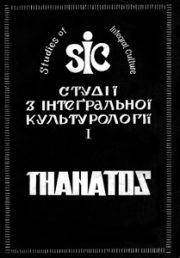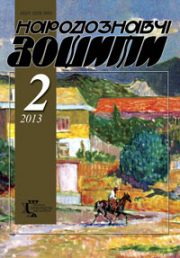The Ethnology Notebooks. 2019, № 5 (149), 1228—1232
UDK 398.87
DOI https://doi.org/10.15407/nz2019.05.1228
THE PROBLEM OF MORAL CHOICE AS A RESPONSIBILITY IN THE UKRAINIAN FOLKLORE
PAVLOVA Alla
ORCID ID: https://orcid.org/0000-0001-6214-8738
Candidate of Philological Sciences,
Associate Professor of Journalism,
Ukrainian literature and culture,
SRI of the humanities,
University of the State Fiscal Service of Ukraine,
31, University st., 08200, Irpin, Kyiv region, Ukraine
e-mail: Lypen.pavlova@ukr.net
Abstract. Chronicle songs are, by their nature, a genre that reproduces extraordinary, exceptional, social and family-friendly events, goes «by the trace of real facts», with all the details informing about something special in the life of a person or collective. The intrigue of death is at the same time horror and deception, it is revealed in the image of hope, then defeat. There is an ethical paradox in the chronicle: death does exist, but at the same time it should not be. Man cannot perceive death as such, seeing in it a lie and moral iniquity — this is the tragic essence of man. But death — it yet is still a great moral test for personality: he cannot wish immortality, realizing the emptiness and absurdity in it.
Relevance of research. The genre consideration of the main components of the chronicle makes it possible to highlight the direct influence of mentality on the behavior of specific characters. Despite the fact that epic chronicles as a genre of extra-ordinary oral folk art were studied by folklorists at the turn of the nineteenth and twentieth centuries. However, modern folklore science still has more questions than answers. Synthetic thinking requires a system of ethical categories, presented alongside the aesthetic, in the chronicle. The purpose of the article is to study the category of moral choice in the aspect of moral responsibility of the personality on the example of a chronicle singer.
The object of the study is chronicles as genres, the texts of which are contained in the collections of Ukrainian folklore of XIX — beginning. XX century, as well as modern editions. The subject of intelligence is the category of ethics moral choice presented in the chronicle. Methods of the research: structural-semiotic, and hermeneutical, intentional values — psychological and cultural methods were used to find out the philosophical constants of the work.
Moral values are the basis of the concept of a chronicle singer. By exploring the vicissitudes of life and the circumstances of the tragic death of others, the author and the audience discover more and more problems and, at the same time, a valuable sense. Even a person who does not pursue something special, is constantly working on the discovery of values, solves for himself or herself some moral problems. As a result of the textual perception of the singer-chronicle, is not only the ordinary reassessment of values, but also the more complicated process — the re-evaluation of life. The essence of values is manifested in a timely, even extra-historical way.
Keywords: culture, folklore, chronicle, heroic epic, historical epic, song, text, social event, language code.
Received 21.09.2019
REFERENCES
Songs of family life. (1988). Kyiv: Dnipro [in Ukrainian].
Lotman, Y.M. (1993). Mechanisms of Culture. Selected Articles: in the 3 vol. (Vol. 3, рp. 326—331).Tallinn: Alexandra [in Estonia].
Dennett, D. (2003). Why each of us is a novelist. Questions of philosophy, 2, 121—130 [in Russian].
Plisetsky, M. (1962). Historicism of Russian epics. Moscow: Higher School [in Russian].
From the Carpathian Mountains. (1981). Ukrainian folk songs are ballads. Uzhgorod: Carpathians [in Ukrainian].
Shukhevich, V. (1902). Hutsulshchyna. Materials on Ukrainian-Russian ethnology (Part 3, vol. 5). Lviv: Shevchenko Scientific Society [in Ukrainian].
Lotman, Yu. M. (1996). Inside the thinking worlds: Man — text — semiosphere — history. Moscow: Languages of Russian Culture [in Russian].
Kolessa, F.M. Ukrainian folk song in the newest phase of its development. Folklore works (Pp. 34—60). Kyiv: Scientific Thought [in Ukrainian].
Potebnya, A. (1922). Thought and language. The complete collection of works. Odessa: State Publishing House of Ukraine [in Ukrainian].
Lotman, Yu.M. (1970). Structure of the artistic text. Semiotic studies on art theory. Moscow [in Russian].
Ukrainian ballads (1993). Kyiv: Ukrainian Center for Spiritual Culture [in Ukrainian].





